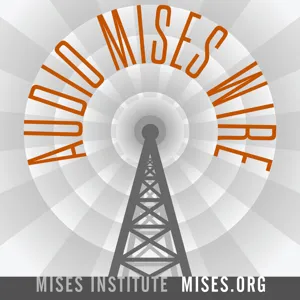Podcast Summary
Taxes and Expropriation: Benjamin Franklin's quote 'death and taxes' remains true, but the current system of progressive taxation can be seen as a form of expropriation, and the future of US tax code is uncertain after the expiration of Trump's tax cuts in 2025
Taxes are a necessary aspect of society, but the current system of progressive taxation can be seen as a form of disguised expropriation of successful individuals. The government collects taxes through the threat of force, and Americans pay a wide range of federal, state, and local taxes. The expiration of former President Trump's 2017 Tax Cut and Jobs Act in 2025 is expected to spark significant debate in Congress, and the future of the US tax code remains uncertain. Benjamin Franklin famously said that the only certainties in life are death and taxes.
Tax Proposals: During election seasons, unconventional tax proposals like higher import tariffs, eliminating tax on tip income, and a national retail sales tax are put forward, impacting federal tax revenue and the economy, highlighting the importance of staying informed about tax policies.
During election seasons, there are always various tax proposals put forward, some more realistic than others. Former President Trump, if re-elected, has suggested unconventional ideas such as significantly higher import tariffs and eliminating tax on tip income. The impact of these proposals on federal tax revenue and the economy is uncertain. Another proposal, the Fair Tax, aims to replace existing federal taxes with a national retail sales tax. These proposals serve as reminders of the ongoing debates surrounding taxation and the potential changes that could impact taxpayers. While some proposals may seem far-fetched, they underscore the importance of staying informed about tax policies and their potential implications.
Flat tax and wealth taxes: The flat tax proposal, with a 30% initial sales tax and net tax rate of 23%, aims to increase savings and economic growth but faces skepticism. Wealth taxes, favored by some, raise questions about administration, revenue generation, and potential negative consequences for wealthy individuals and the economy.
The tax landscape continues to evolve with various proposals, including a potential flat tax system and wealth taxes. The flat tax, which would involve a 30% initial sales tax and a net tax rate of 23%, has been proposed to increase savings and economic growth but faces skepticism. Wealth taxes, favored by some on the political left, raise questions about administration, revenue generation, and potential negative consequences for wealthy individuals and the economy. Despite ongoing debates, the U.S. federal government's focus on revenue generation continues, with interest on the federal debt consuming a significant portion of individual income taxes. Other tax proposals, such as carbon taxes and more progressive taxes, are also on the horizon. Ultimately, the tax landscape is shaped by ongoing political, economic, and societal considerations.
Presidential Election Proposals, Taxes, Debt: The presidential election's costly new programs could lead to insolvency in funds like Social Security, Medicare, and Highway Trust, and potentially exacerbate inflation and threaten bond markets due to increasing debt and lack of consensus on spending reductions and tax increases.
The upcoming presidential election is bringing forth various costly new programs from both major political parties, including universal basic income, reparations, and increased middle class benefits. These proposals would significantly increase the need for additional tax revenue or federal debt. The accumulating debt, which already runs at about 100% of GDP, could lead to insolvency in funds like Social Security, Medicare, and Highway Trust, and lack of consensus on spending reductions and tax increases. This situation raises concerns about American tolerance for more tax and debt burdens on current and future generations. The question of when this will lead to a change in political and economic trajectory remains unanswered. This situation could potentially exacerbate inflation and threaten bond markets, making it a pressing issue that requires attention. For more insightful discussions on economics and politics, visit Mises.org.
